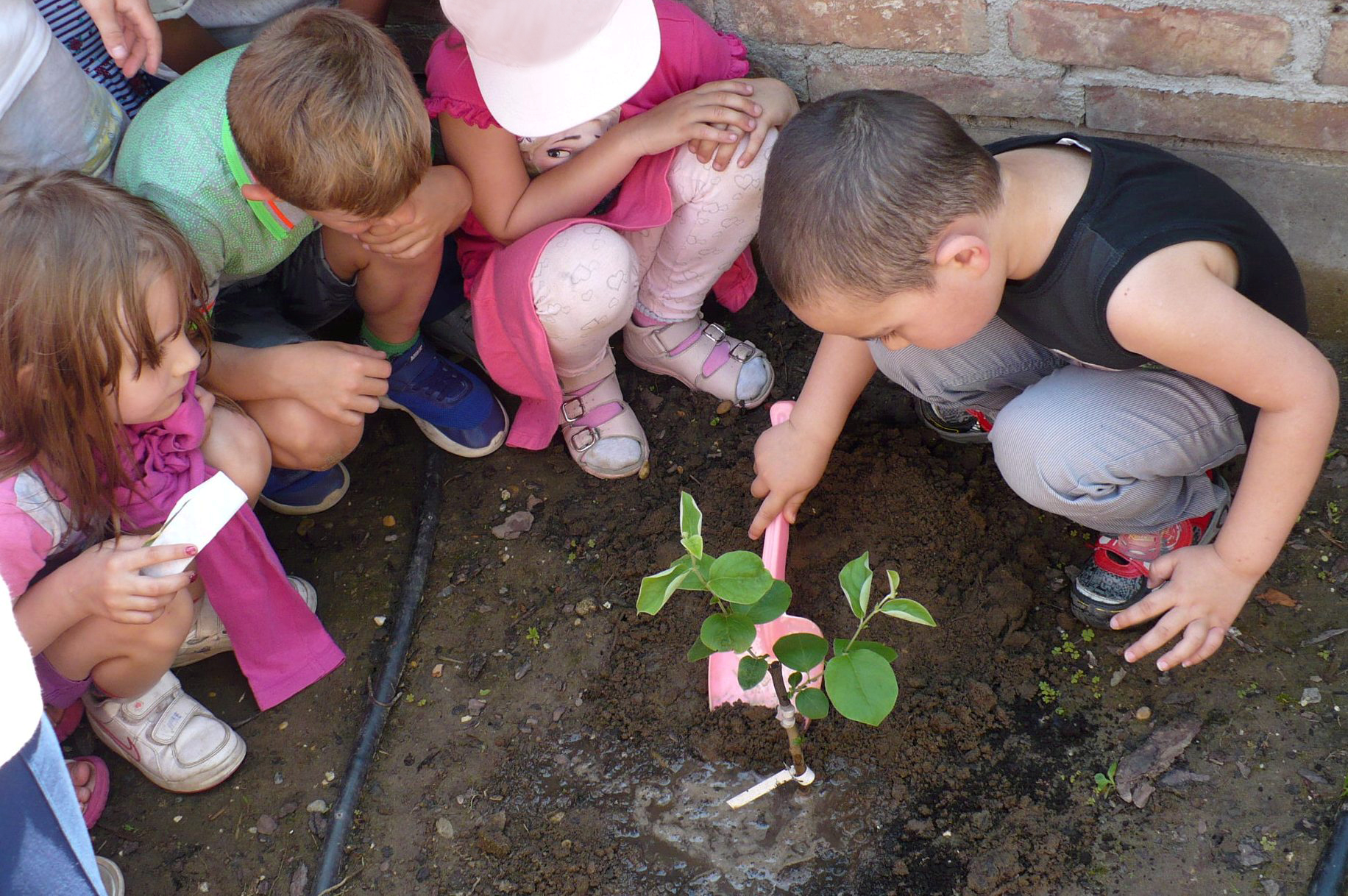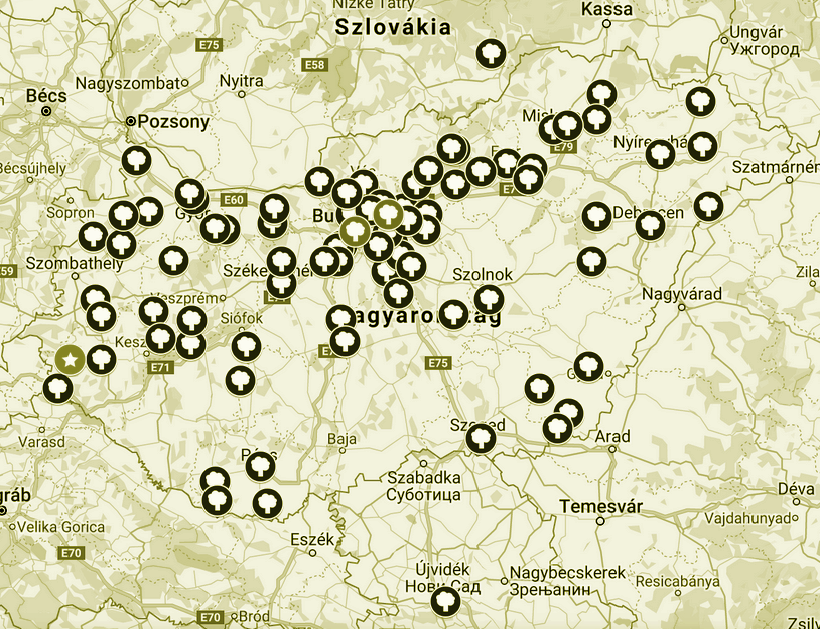
What does it really mean to work towards a low-carbon, small footprint lifestyle?The carbon footprint is an index indicating the – direct and indirect – greenhouse gas emission of an event, product, company, etc. The bigger your carbon footprint is, the more damaging effect it has on the environment. There are many factors influencing our carbon footprint: the flat/house where we live, the amount of energy we use, the goods we buy, the food we eat, the means of transport we travel with. Obviously, it is best to avoid the emission, i.e. to organise our company life and events with the least possible CO2 emission. If we cannot avoid emissions, there are ways to offset and compensate for them. The most natural way is probably planting trees.

Planting trees can not only reduce the effects of climate change, the method has several additional advantages. Selecting the appropriate species of trees can help preserve biodiversity, trees can produce fruit, provide habitat and nourishment for animals, provide shades, directly cool their environment and they can play an important part in environmental education.
In relation to the above, the TreeDependent programme contributes to several Sustainable Development Goals as follows:

GreenDependent offers the following services in the framework of the "TreeDependent - Responsible events, responsible travel" programme:
- consultation and practical tips to lower our lifestyle and travel;
- calculating the carbon footprint of a household for a certain period;
- calculating the carbon footprint of events and/or travels (e.g. flights);
- compensating the calculated carbon footprint through planting native fruit trees;
- organising tree planting for farewell ceremonies and weddings.
The general process of calculating and compensating carbon footprint at GreenDependent:

- Data collection about events, travel etc. with the assistance of GreenDependent
- Calculating the carbon footprint and the number of trees needed: based on the collected data, GreenDependent calculate the carbon footprint and determine how many trees would compensate the emission.
- Getting native fruit trees: purchasing the trees after the number of compensation years is determined.
- Distributing trees to school gardens and non-profit initiatives: planting of the trees, preparation of a report on the carbon footprint and the planting event.
What kinds of trees and where are they planted in the scope of our service?
GreenDependent purchase the trees from a gene pool called Tündérkert ('Fairy Garden') located in Zala County, west Hungary. Their mission is to preserve and spread (or rather “re-spread”) native Hungarian fruit tree species. Native trees have a much better biological tolerance than foreign tree species, thus they are more resistant so they do not need regular pruning and spraying. During the past 10 years, GreenDependent have organised the planting of thousands of trees in 100+ settlements (see the map below).
By clicking on the map you can reach to an interactive version that shows how many trees were planted at a certain settlement.
Stories of individuals who chose this method:
- Veronika Kiss: calculating the carbon footprint of a family overseas flight and compensating it through planting native fruit trees (article in Hungarian HERE)
- Adrien Reizer: calculating the carbon footprint of a family overseas flight and compensating it through planting native fruit trees (article in Hungarian HERE)
- The class 12.c. of József Attila Middle School at Újbuda will plant trees to celebrate their graduation instead of letting up balloons
Some references related to green, low-carbon lifestyle:
- 'Small footprint' program and national campaigns: development of a carbon calculator, tips and advises for the low-carbon lifestyle, trainings, guidebooks (in Hungarian HERE)
- 'Small footprint' newsletter and website: news, tips, interesting cases related to the low-carbon lifestyle (in Hungarian HERE)
- Gödöllő Climate Club: residential community building for the sake of community-based, low-carbon lifestyle
- EnergyNeighbourhoods - E.ON EnergyNeighbourhoods: a community-based program for households to promote and support the practical implementation of low-carbon, climate-friendly lifestyles
- ENERGISE Living Labs: an intensive, interactive experiment with households about the implementation of energy efficient, low-carbon lifestyle
 Should you have any questions or need more information about the TreeDependent program, do not hesitate to contact us at
This e-mail address is being protected from spambots. You need JavaScript enabled to view it
or
This e-mail address is being protected from spambots. You need JavaScript enabled to view it
Should you have any questions or need more information about the TreeDependent program, do not hesitate to contact us at
This e-mail address is being protected from spambots. You need JavaScript enabled to view it
or
This e-mail address is being protected from spambots. You need JavaScript enabled to view it


















